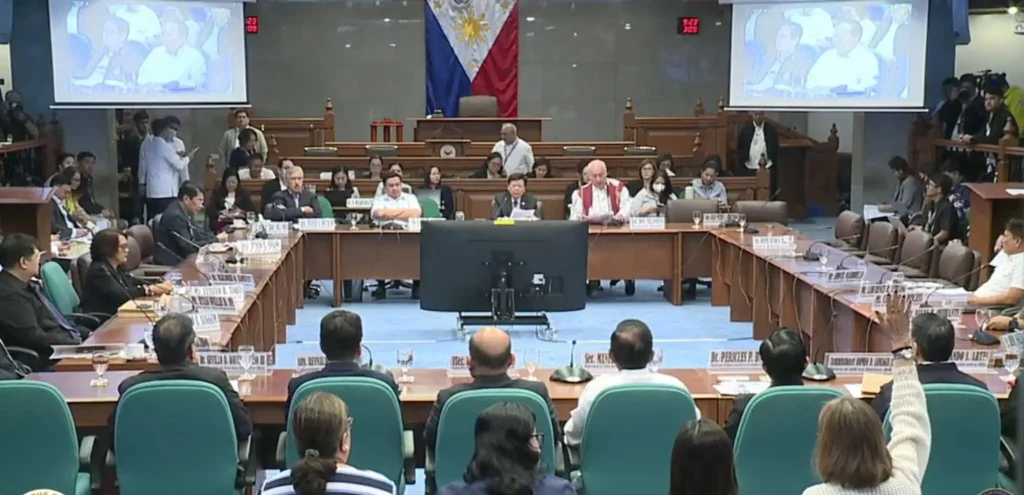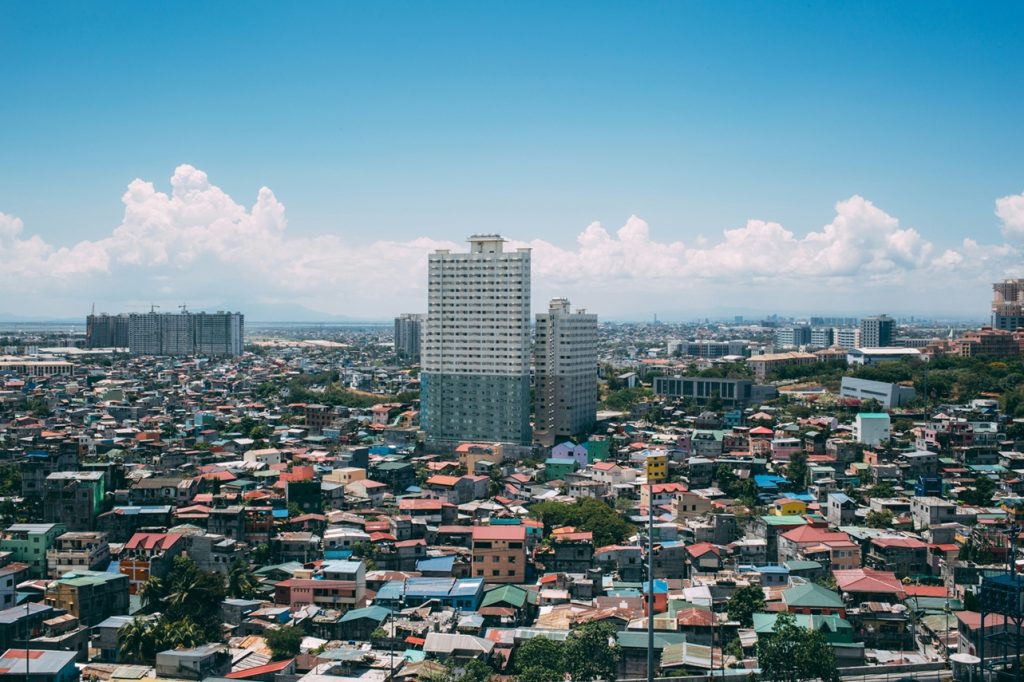
Many perceive the current Senate hearings as an opportunity for real change, but as so many politicians and functionaries are being implicated in corruption, will there be enough “honest” ones left at the end to enact the needed revisions to government in the country, both at the national and local levels?
Robert T. Wagner
Clark Field
4 Oct. 2025
In the sweltering heat of an assembly room at the GSIC Building in Pasay that houses the Philippine Senate, the air crackles with tension as whistleblowers lay bare a web of graft that has siphoned billions of Pesos from the nation’s infrastructure spending programs. The ongoing Senate Blue Ribbon Committee hearings into corruption in government flood control projects – dubbed the “Philippines Under Water” probe – have exposed kickbacks to high-profile politicians, substandard construction, and “ghost” projects that exist only on paper.
As testimonies implicate senators and other “Pessimi Politici” in a scandal estimated to have cost the economy up to 118.5 billion Pesos (2 billion Dollars) annually, the nation grapples with a pivotal question: Will these revelations cleanse the system and bolster long-term growth, or will they plunge the Philippines into economic uncertainty?
The probe, which kicked off in August 2025, stems from a cascade of revelations dating back to 2024. Allegations center on the Department of Public Works and Highways (DPWH), where funds meant to shield vulnerable communities from typhoon deluges were allegedly diverted through overpricing, contractor monopolies, and brazen bribery. Former DPWH officials, including undersecretary Henry Alcantara, have testified to that up to 25% was funneled to politicians, leaving budgets for actual infrastructure work woefully lacking.
High-profile names dropped in hearings include Senators Francis Escudero, Nancy Binay, Ramon Revilla Jr., and Jinggoy Estrada, alongside recently ousted House Speaker Martin Romualdez and Duterte family allies, with ties to over P51 billion in Davao-region allocations from 2022-2024. Vice President Sara Duterte is undergoing corruption investigations of her own on the disbursement of so-called “Confidential Funds”. A dramatic collapse of a 100 million Peso flood wall in Lucena, Quezon, in August underscored the human cost: shoddy work amid relentless rains that displaced thousands.
President Ferdinand “Bongbong” Marcos Jr. responded reflexively by vetoing P16.7 billion in redundant projects from the 2025 budget and establishing the Independent Commission for Infrastructure (ICI) via Executive Order No. 94 in September. The DOJ has recommended prosecutions against 21 individuals, including incumbents, while the Ombudsman suspended 16 DPWH personnel so far and froze assets worth millions.
The fallout has ignited public fury. Youth-led protests like the “Trillion Peso March” on September 21 drew over 30,000 to Luneta Park, clashing with police and causing 10.4 million pesos in damages. Even international partners, such as South Korea, have paused a 503 million Dollar loan, citing aversion to graft risks.
From the standpoint of the economy, these hearings present a precarious tightrope. In the short term, the scandal has rattled markets and eroded confidence. Financial indices have slumped for a week straight, with the peso weakening amid fears of politicized probes, according to economists. “Businessmen are jittery; this makes us nervous about the investment climate,” said Robert M. Young, president of the Foreign Buyers Association of the Philippines.
The Philippine Chamber of Commerce and Industry echoes this, warning that lost private-sector trust could delay projects and spur capital flight reminiscent of the debt crisis 40 years ago. DPWH’s suspension of all flood control initiatives in regions like Oriental Mindoro has idled workers and contractors, exacerbating unemployment in construction-heavy areas. Finance Secretary Ralph Recto revealed that up to 70% of flood budgets – totaling 2 billion Dollars over two years – vanished into corrupt coffers, amplifying vulnerabilities to climate disasters that already cost the economy 42.3 billion to 118.5 billion Pesos yearly.

Insatiably Greedy Politicians
Glimmers of positivity emerge on the longer horizon. By rooting out graft, the probe could reclaim funds and restore public credibility. “If conducted swiftly and impartially, this could rebuild investor confidence,” noted Department of Economy, Planning, and Development Undersecretary Rosemarie G. Edillon. Marcos’s sudden redirection of 225 billion Pesos from flood projects to education and social services in the 2026 budget signaled a potential pivot toward more responsible spending.
Analysts at the Ateneo Center for Economic Research argue that prosecuting key figures would deter future malfeasance, potentially unlocking foreign direct investment in better infrastructure that is currently hampered by perceptions of risk. As one business leader put it, “The Philippines remains attractive due to prospective reforms. Investors are giving the President the benefit of the doubt but sitting tight until the fat lady sings”.
At the heart of this turmoil lies the Philippines’ “quasi-genetic” corruption, a term experts use to describe its deep entrenchment in political DNA, from patronage networks to dynastic strangleholds. Transparency International ranks the country 116th out of 180 for perceived corruption, with petty bribes evolving into grand state capture. Addressing it demands more than probes; it requires systemic overhaul.
With a nod to his having been first to coin the term, “FloodGate”, Longtime Columnist and Editorial Board member at the Manila Times, Ben Kritz, submitted, “The lack of or underdevelopment of infrastructure is a big worry, and those concerns have been voiced a lot more in the last several weeks as this scandal has ballooned. It’s being taken as a sign that infrastructure development is going to slow down even more.”
Experts advocate a multi-pronged assault on the problem. First, digitize governance by automating procurement and licensing via platforms like eGovPH to slash discretion and opacity. Second, fortify watchdogs like the Commission on Audit, Ombudsman, and judiciary with independence, resources, and whistleblower shields. Third, install campaign finance reform and reinvigorate the Anti-Political Dynasty Law to dismantle patronage cycles. Beyond these measures, real-time transparency in asset declarations and spending data via a Freedom of Information law would empower citizens.
The private sector must also join in through integrity pacts and blacklisting rogue firms. As the International Development Law Organization notes, “Tackling social norms – where corruption is regularized as ‘under-the-table deals’ – through education and youth activism is crucial.” The recent protests, blending outrage with demands for accountability, hint at a generational shift.
As the hearings grind on, and arrest warrants are issued for no-shows and more testimonies slated for next week, the Philippine economy teeters on revelation’s edge. Short-term tremors are undeniable, but if the probe catalyzes genuine reform, it could transform a perennial vulnerability into a springboard for sustainable growth. For a nation perpetually lashed by storms, both literal and political, the stakes could not be higher. Will corruption’s flood finally recede, or will it drown the archipelago’s ambitions once more?


